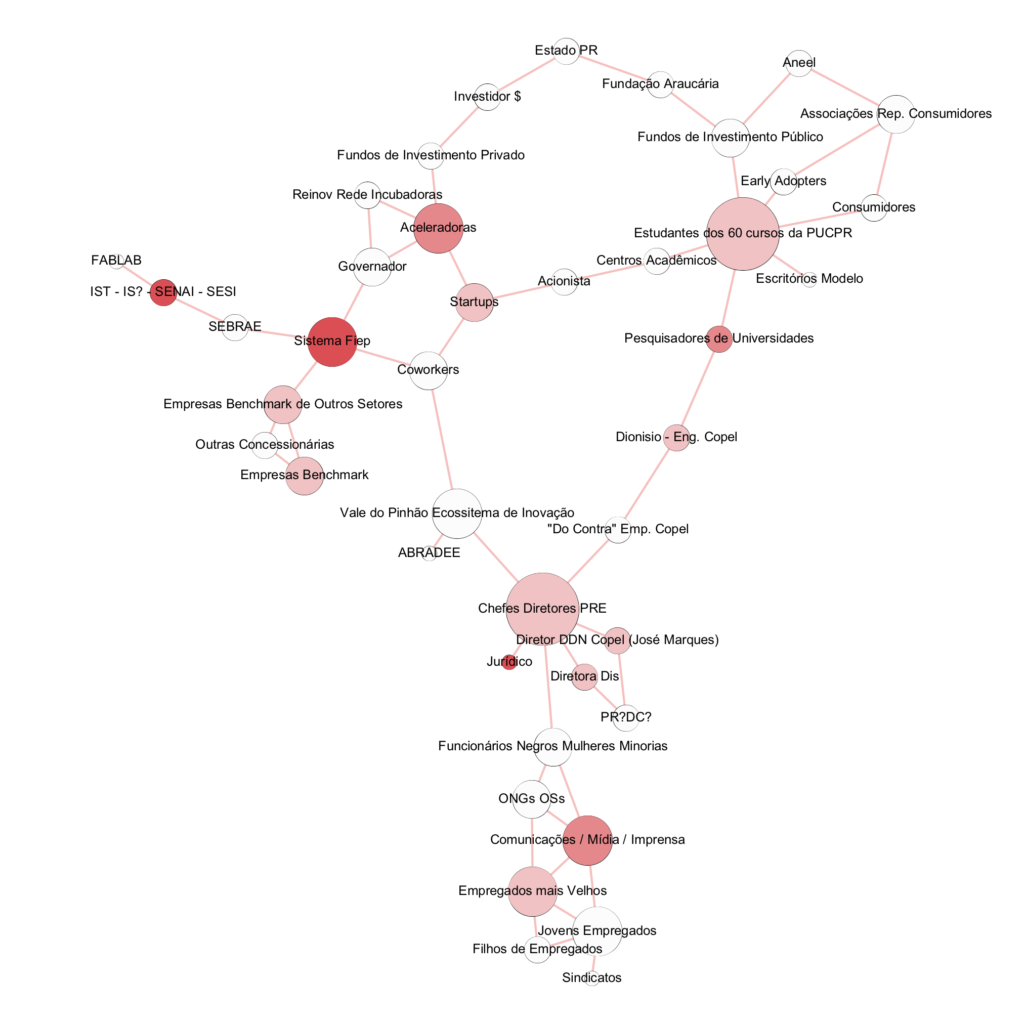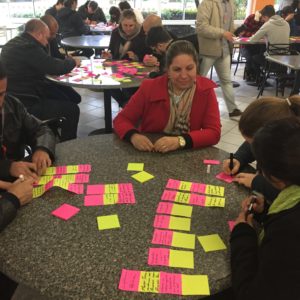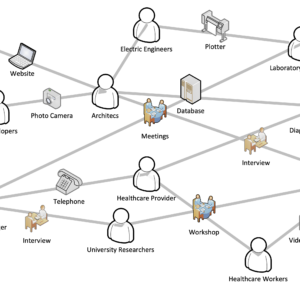SHALL is short for Stake Holder Analysis with Lovely Links. It consists of mapping all the stakeholders possibly interested in a problem through their organization and inter-organizational relationships. Each stakeholder is mapped as a doll and relationships are loosely represented as a thread connecting the dolls. The game starts by asking the participants to map four to eight stakeholders, by choosing a representative doll, writing down its organization label on a post-it, and tying relationships with the threads. After that, the game runs freely with contributions coming from multiple participants at the same time, as they discuss, reflect on the emerging network.
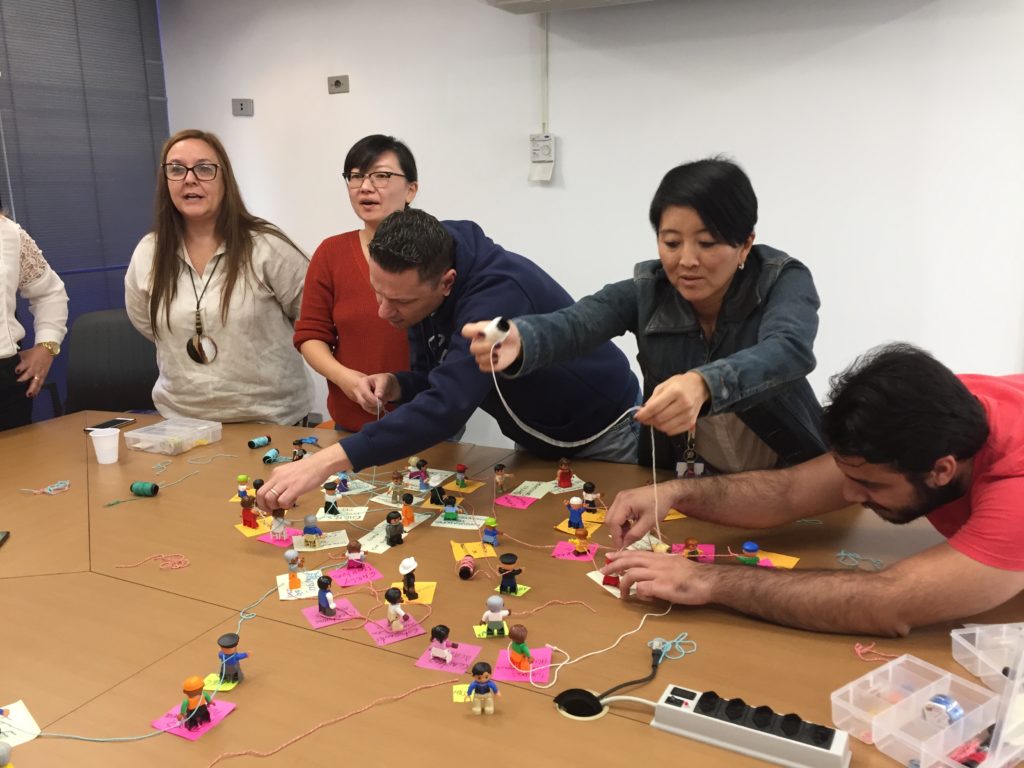
The specific relationship between different stakeholders can be explored through improvised dialogues between them, like in a puppet theater. This is very useful to uncover stakeholder motivation, willingness to cooperate, and political positioning.
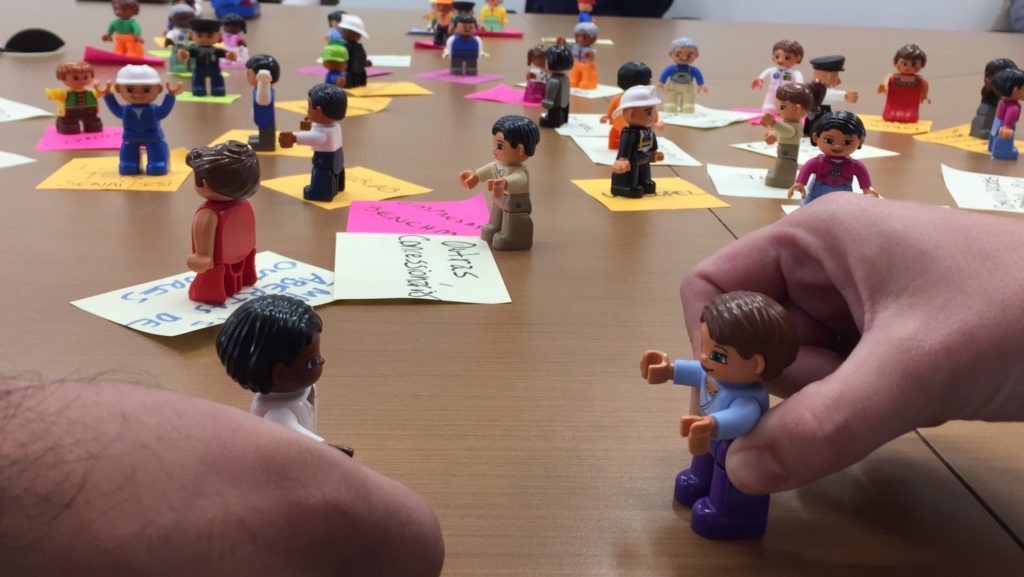
The data generated by SHALL can be visualized through an analytical graph. SHALL was initially developed to map Copel+ Platform stakeholders.
